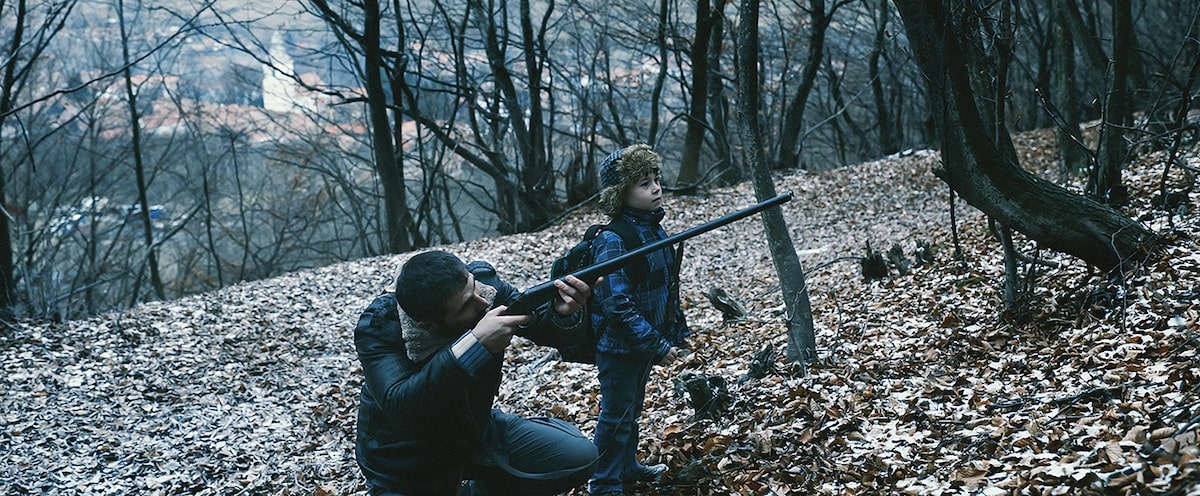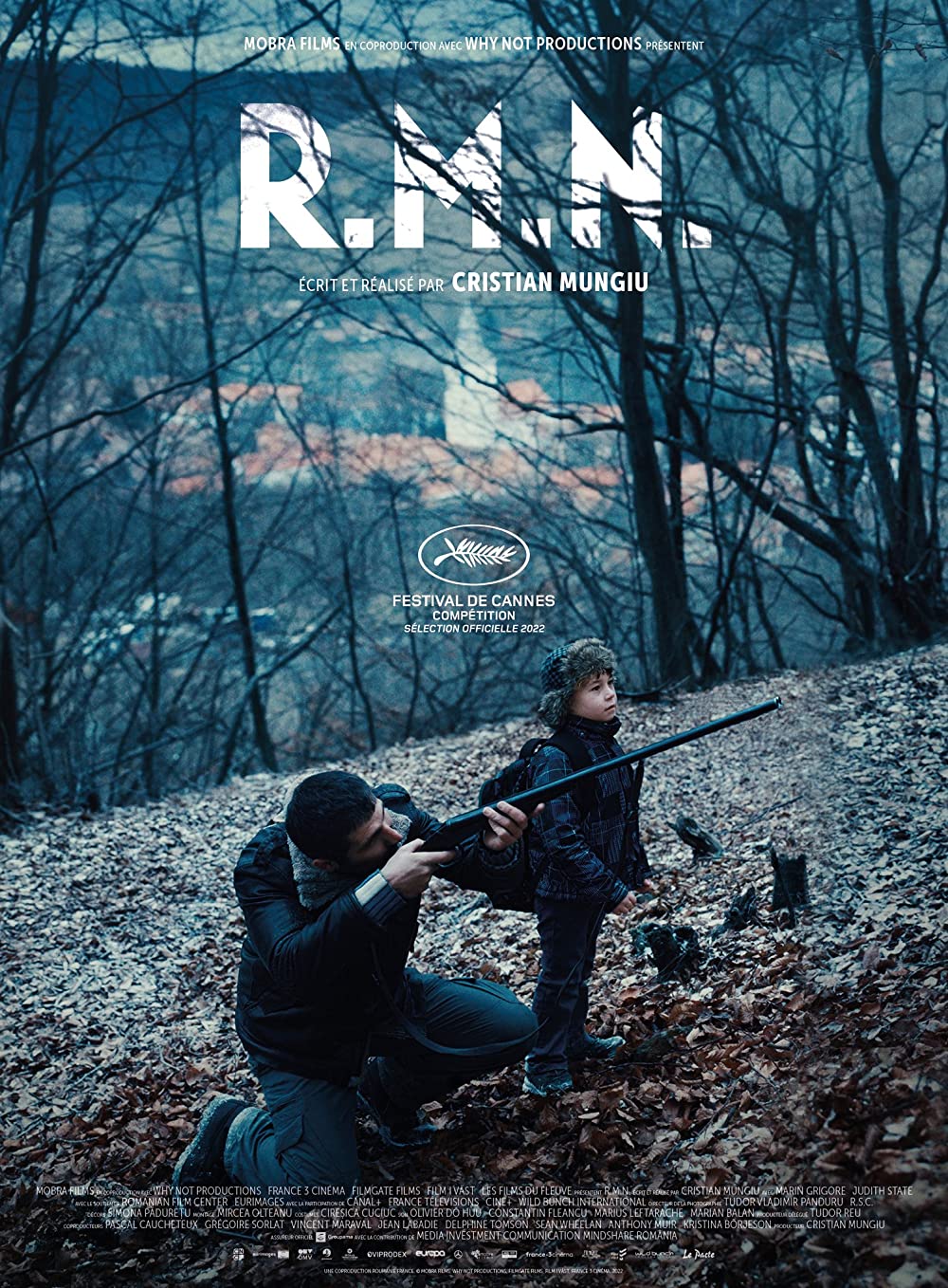Cristian Mungiu makes empathetic films about the power structures of society—like the ones seen in a masterpiece like “4 Months, 3 Weeks, and 2 Days” or the ethical issues that can be unseen in a great drama like “Graduation”—and so the title of “R.M.N.” feels perfect for the auteur. It refers to a phrase that translates to “nuclear magnetic resonance” in English. Is it about physics or science? Not all, but it’s about trying to see things that simmer below the surface, issues that often fail to surface until it’s through violence. “R.M.N.,” which premiered way back at Cannes in 2022 and is finally getting a U.S. release this month, isn’t Mungiu’s best work, but it is further evidence that he is one of the world’s most interesting dramatists. In some ways, this is his most ambitious picture, a film that extrapolates the tension in a small Romanian village as a symbol for conflicts around the world regarding who is allowed to call a place home.
When the film opens, Matthias (Marin Grigore) is working in a German slaughterhouse. While out on a smoke break, he is called a “lazy gypsy” by a co-worker, who he quickly headbutts to the ground. The sudden violence says a lot about Matthias’ instincts, but it will also have interesting reflections later in the film when racism in the workplace surfaces again. Matthias flees immediately, hitchhiking his way home to his former home in a small Transylvanian village. That’s where his estranged wife Ana (Marcina Bârlădeanu) lives with their eight-year-old son Rudi (Mark Blenyesi). When Matthias arrives, he’s startled to find that the silent Rudi is too scared to walk to school alone. He saw something in the woods but won’t say what. He takes it upon himself to make Rudi a “man,” teaching him how to hunt and fight. Matthias is a brutish man—there are references to past abuse and that opening act of violence—but he seems to be trying to elevate Rudi in the only way he knows how.
Matthias tries to rekindle things with his ex-girlfriend Csilla (an excellent Judith State), but she’s distracted by increasing drama at work. She helps run a bakery that can’t find enough staff in the village, even when they promote that overtime pays double. When no one responds to the help wanted ads, Csilla looks to another community, which brings in three Sri Lankan immigrants—Amitha Jayasinghe, Gihan Edirisinghe, and Nuwan Karunarathna. They’re hard workers, but the community almost instantly turns to paranoia and eventually violence. It’s not a coincidence that Mungiu sets his morality tale around Christmas. This is the village that turned Joseph and Mary away.
Mungiu’s film is more than just set in Romanian winter—it’s so cold that you can feel it in your bones. It’s not only the slight snow cover on the ground or breath in the air. It’s in Mungiu and Tudor Vladimir Panduru’s blue color palette that feels so uninviting. Mungiu works in a manner that could be called stark realism, but his movies are also underrated in their cinematic language. The compositions here can be striking without calling attention to their construction.
He saves his most daring composition for an extended scene in which the camera never moves. “R.M.N.” pushes to inevitable violence, but the climax is a town meeting, so crowded that it has to move from the church to another building—also arguably because Jesus wouldn’t look kindly on how the meeting devolves into accusations and racist taunts. Mungiu plants his camera, and we watch people who probably consider themselves kind and open-hearted, especially around Christmas, become increasingly anti-immigrant.
Mungiu is unpacking how small communities built on a melting pot of different cultures—Romanians, Hungarians, and Germans in this one—can still be so unwilling to accept anyone new. The people of this village get to a point where they won’t even eat the bread baked by the Sri Lankans and essentially demand that they are removed. They almost certainly have experienced racism but don’t hesitate to pass it on to someone new. How often is this happening around the world nowadays? People whose parents were immigrants are forcing new immigrants out of their homes? Why? How does this happen? Mungiu gets at these themes without directly providing answers (and ends a bit too ambiguously for my tastes).
Like all of Mungiu’s films, “R.M.N.” has so many layers and details to consider. Csilla is clearly well-off—she’s often seen listening to classical music or drinking wine—and one wonders how her class privilege plays into her lack of fear over the village’s future. She’s insulated in ways others aren’t. And even her seeming magnanimity has an economic thrust as the bakery gets different tax breaks with more immigrant workers. How are we supposed to feel about Csilla? Matthias? Mungiu doesn’t traffic in easy hero and villain narratives. He’s more interested in revealing how easily anyone can be both.
In limited release now.




















